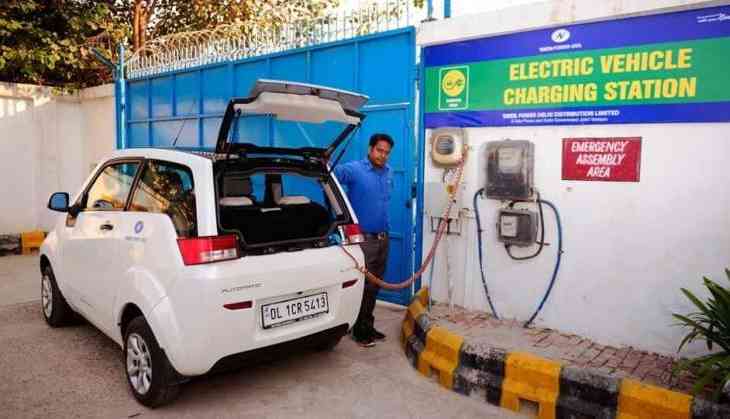Indian roads to hit with electric cars by 2030 with FAME scheme; Govt increases outlay

The scheme, FAME India (Faster Adoption and Manufacture of (Hybrid and) Electric Vehicles) was launched by the Ministry of Heavy Industries and Public Enterprises in 2015 to incentivise the promotion of eco-friendly vehicles including electric and hybrid vehicles.
The government recently increased the outlay by Rs 100 Cr to Rs 895 Cr for the first phase of the FAME India scheme to promote mass adoption of electric vehicles, having extended the scheme four times, according to an official notification.
The phase-I of the Faster Adoption and Manufacturing of (Hybrid) and Electric Vehicles (FAME India) scheme was supposed to be implemented over a two-year period commencing from April 1, 2015.
It was to be followed by the roll-out of the second phase. The FAME scheme is part of the government’s ambitious programme to convert at least one-third of the automobiles on Indian roads to EVs by 2030.
The first phase was extended four times for six months each. The latest extension is in effect till March 2019 or till a notification for the second phase.
The Ministry of Finance has approved the enhancement of the total outlay on the first phase of the scheme from Rs 795 crore to Rs 895 crore, according to a gazette notification issued by the Ministry of Heavy Industries and Public Enterprises, which is implementing the scheme.
This followed recommendation from the Expenditure Finance Committee (EFC) for an additional outlay of Rs 100 crore, over and above the existing approved outlay, it added.
Industry leaders believe that currently, there is a need for government support for EVs, which are at a nascent stage in India.
“We want FAME to continue so that there is a kind of facilitation and expediting of this process (of electrification of vehicles),” Mahindra group Chairman Anand Mahindra told PTI.
While observing that the industry would like subsidy to be continued for some time, Mahindra said, “We are (also) convergent on one thing that eventually this (popularisation of EVs) will not come if you are dependent on subsidy. At some point, you have to break free.”

